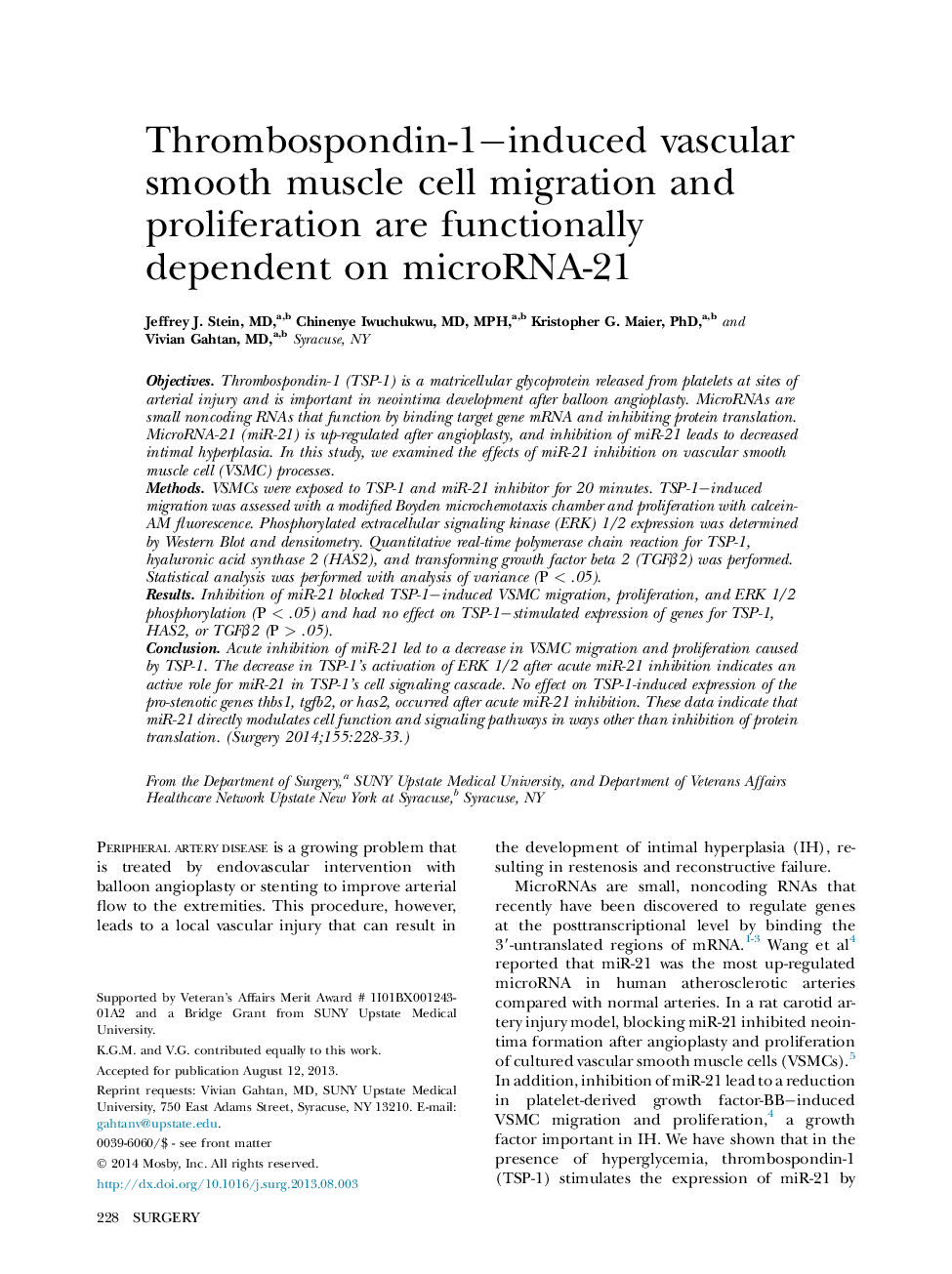| Article ID | Journal | Published Year | Pages | File Type |
|---|---|---|---|---|
| 4308228 | Surgery | 2014 | 6 Pages |
ObjectivesThrombospondin-1 (TSP-1) is a matricellular glycoprotein released from platelets at sites of arterial injury and is important in neointima development after balloon angioplasty. MicroRNAs are small noncoding RNAs that function by binding target gene mRNA and inhibiting protein translation. MicroRNA-21 (miR-21) is up-regulated after angioplasty, and inhibition of miR-21 leads to decreased intimal hyperplasia. In this study, we examined the effects of miR-21 inhibition on vascular smooth muscle cell (VSMC) processes.MethodsVSMCs were exposed to TSP-1 and miR-21 inhibitor for 20 minutes. TSP-1−induced migration was assessed with a modified Boyden microchemotaxis chamber and proliferation with calcein-AM fluorescence. Phosphorylated extracellular signaling kinase (ERK) 1/2 expression was determined by Western Blot and densitometry. Quantitative real-time polymerase chain reaction for TSP-1, hyaluronic acid synthase 2 (HAS2), and transforming growth factor beta 2 (TGFβ2) was performed. Statistical analysis was performed with analysis of variance (P < .05).ResultsInhibition of miR-21 blocked TSP-1−induced VSMC migration, proliferation, and ERK 1/2 phosphorylation (P < .05) and had no effect on TSP-1−stimulated expression of genes for TSP-1, HAS2, or TGFβ2 (P > .05).ConclusionAcute inhibition of miR-21 led to a decrease in VSMC migration and proliferation caused by TSP-1. The decrease in TSP-1’s activation of ERK 1/2 after acute miR-21 inhibition indicates an active role for miR-21 in TSP-1’s cell signaling cascade. No effect on TSP-1-induced expression of the pro-stenotic genes thbs1, tgfb2, or has2, occurred after acute miR-21 inhibition. These data indicate that miR-21 directly modulates cell function and signaling pathways in ways other than inhibition of protein translation.
